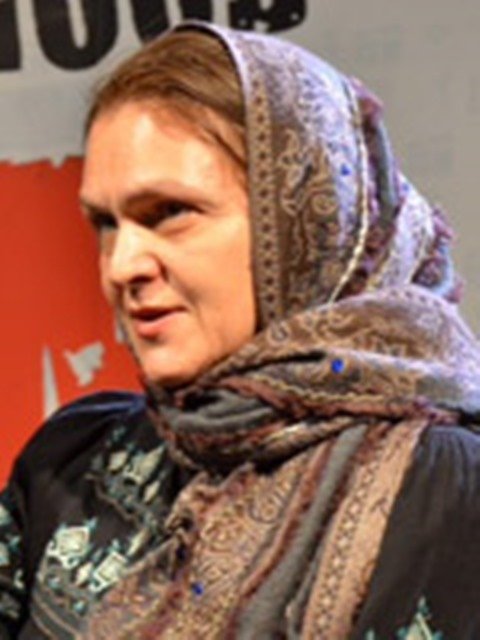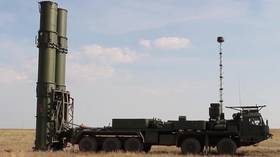Final settlement to Palestinian issue?
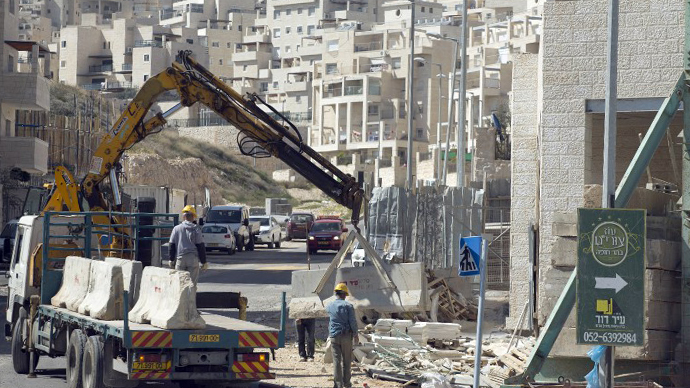
The UN General Assembly proclaimed 2014 the International Year of Solidarity with the Palestinian People, but this comes amid regular demolitions of Palestinian homes, evictions and property expropriation conducted by Israel.
Twenty-five thousand Palestinian houses and 160,000 Palestinians in East Jerusalem, the Negev Desert and the Jordan valley are facing a similar threat.
Over the 46 years since 1967 the Israeli authorities demolished 27,000 Palestinian homes on the West Bank. In only 2 percent of the 27,000 cases of demolition were security reasons given. And while Israel built illegal Jewish settlements for 200,000 people on the West Bank, 300,000 Palestinians were forced out of their homes, and their homes demolished.
The situation is especially dire in East Jerusalem, occupied by Israel that doesn’t allow the Palestinian Authority to set up any institutions there. According to the UN, a third of Palestinian homes in the city does not have a building permit, which means 93,100 Palestinians under the threat of eviction.
According to Israeli Committee Against House Demolitions (ICAHD), Israeli courts dismiss or ignore 94 percent of Palestinian applications for a construction permit. The human rights organization says it’s a deliberate policy on the part of Israel. If everything is goes according to plan: the share of Palestinians in Jerusalem is expected to drop from 36 to 28 percent.
The Negev Desert is home to some 150,000 Bedouins, who are semi-nomadic Palestinians engaged in cattle breeding. Israel announced that a significant part of them (between 40,000 and 80,000) would have to move from the desert to the north.
During 11 months of 2013, the Israeli authorities demolished more than 630 Palestinian homes – without any media fuss. They also forcefully relocated 1,035 Palestinians, including 526 children.
House in way of non-existent railroad
Sayed abu Sharquia and his family have been staying in a tent since last summer. A court ruled that their house stood in the way of a future railroad. But there has been no design for the railway yet.
Bulldozers came at midnight, and the Palestinian family was given just a couple of minutes to collect their belongings. They barely took anything. Then the walls and all the trees were torn down. They now live on the ruins what used to be their home.
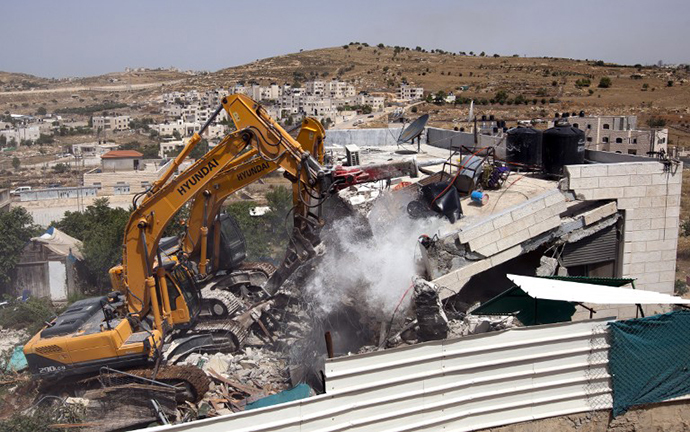
In a way they were lucky: none of them were arrested or relocated forcefully or pushed beyond the security fence. The Israelis didn’t throw stones at the grandmother who cried and stood by the door, they didn’t set dogs on her. While she was crying, they destroyed her home and her wedding jewelry was buried under the rubble.
No one was accused of terrorism in this family. These people do not belong to any parties. They are Israeli citizens and have worked for Israel their whole life.
Sayed abu Sharquia was born in Haifa in 1947. During the 1948 purges, his parents ran away to their relatives in the settlement of Wadi Ara. They never had a chance to go back.
Israel never brings up this issue. It’s a harsh reality that Palestinians who left their homes in a war, revolt, or purges will not be able to return home. Exceptions to this rule have been but a few. If a Palestinian family found refuge in Lebanon, Jordan, Syria, the Gaza Strip, Bethlehem or Jericho, they would never have a chance even to look at their old house. They could be easily arrested for attempting to do so.
At 14 Sayed went to study in Jerusalem to become a welder. He worked at the construction of the port in Haifa and helped to build kibbutzim. In the 1970s he got married, bought a plot of land in a Palestinian village and built a house for his wife and 10 children. No one has ever asked for any building permits in that village.
Since the 1980s, he has been summonsed twice for illegal construction. He spent several terms in prison, paid huge fines – and all this only because he refused to demolish his own home. He doesn’t have it any longer.
‘Legal’ demolitions
Demolitions are conducted by Israel’s Defense Forces. If a member of the family was put on the terrorists list, it’s only the military that are present on the site. If there are no terrorists in the family, they bring along someone from the civilian administration. A terrorist could be anyone –a female student who took part in a rally or a boy who threw stones in the Israeli settlers cutting down their family’s olive gardens. These are arrested and their homes demolished.
But more widespread are cases where the authorities declare a house ‘illegal’ or ‘in contradiction of the interests of the state’. Actually, Israel can recognize any Palestinian home or settlement as ‘illegal’. The problem with permits is explained by differences between civilizations. Most of the Palestinians have never used anything like the Western-style building permit. Palestinians used to build their homes among other Palestinians in line with their own community rules. The Middle East was never a place ridden by bureaucracy or red tape. People used to buy a plot of land, get their plan approved by the community and build their home.
The Israeli authorities believe their actions are legal while Palestinians think this is part of the de-Palestinization campaign in Palestine, an attempt to push them from their land by creating inhumane conditions.
Many Western activists sought to stop the demolitions. One of them, US citizen Rachel Corrie, died when an army bulldozer ran over her. Since then the Israeli authorities have prevented the activists from entering the country – they are detained at the airport and deported.
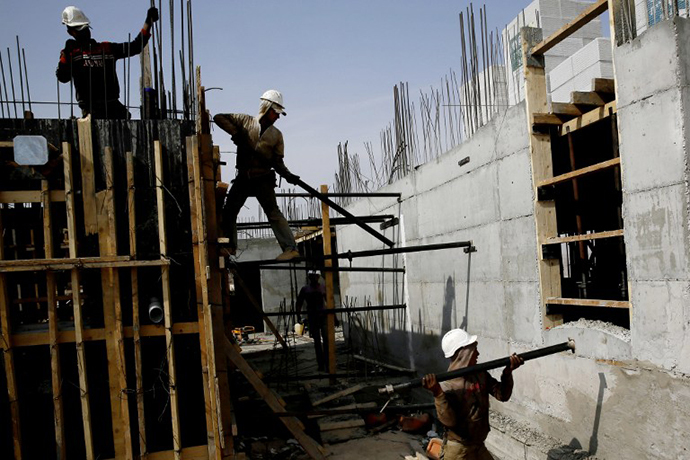
But there are activists inside Israel, too, who keep track of the situation and even help Palestinians build their homes anew. But these examples are overshadowed by the massive eviction campaign.
Today the Israeli authorities will send an official demolition order. If it’s the house of a ‘terrorist’, the family will have just a couple of minutes to collect their belongings. If it’s simply an ‘illegal building’, you could get some breathing space of several months or years, but the bulldozer will certainly come, one day or another.
Palestinian camps undermine Israel’s security
Israel has annexed most of the West Bank and the whole Jordan valley, which are usually defined on the maps as the Palestinian Authority, and is now evicting the Palestinians from these territories.
In January 2014, 25 Palestinians from the family of Atiya Fathi Kassem Bani Minieh lost their home in Atef abu A-Rub (called Khirbet ‘Ein Karzaliyah in Hebrew) in the north of the West Bank.
On January 8, 2014, at 6:30am the military demolished the tents of three families, pushing nine adults and 15 children on to the street. They have some 750 cattle and two henhouses. There’s a well nearby. The children go to school in the neighboring village.
In 1972, the Israeli Defense Forces declared this area a military zone. But until 2011, the military never visited it. In 2010, the locals were ordered to leave the territory within 72 hours under the excuse that this land is a ‘closed off area’ and the ‘zone of fire’. By late 2011, the negotiations of the lawyers and the occupational administration yielded an agreement that the families could stay if their cattle did not stray further than 300 meters from the camp. An Israeli court denied this right to the families.
The occupational administration told them they could relocate to some desolate territories several kilometers away from their usual place of living but they refused. They knew that the next step would be forcible eviction from those territories, too, because it was ‘a temporary place of residence’. Interestingly, the authorities didn’t accept their evidence that they had lived there since 1999.
Historical data have a strong ideological significance in Israel. The Israelis say it’s their land, not just because it was God-given, but because Palestinians simply don’t exist. The use of the word ‘Palestinians’ in reference to Arabs is perceived as anti-Semitism in Israel. But while this babble on the divine right of Israel rumbles on, on January 14, 2014, the military came back to Atef abu A-Rub to destroy the new tents set up by the family to weather the cold months.
Homes beyond the wall
There was a lot of talk in the media when the authorities of Jerusalem attempted to demolish a Palestinian neighborhood in the districts of Ras Khamis и Ras Shahada.
For five years, the authorities seemed not to have noticed the intense construction works going near the 8-meter-high demarcation wall. The authorities simply closed the passage through the wall and removed the nearest checkpoint, forcing the locals to spend a lot of time to get around it to get to their work, to the market, to school, university or hospital. No utility services were available here, and the residents had to burn the waste because the dump trucks never came here.
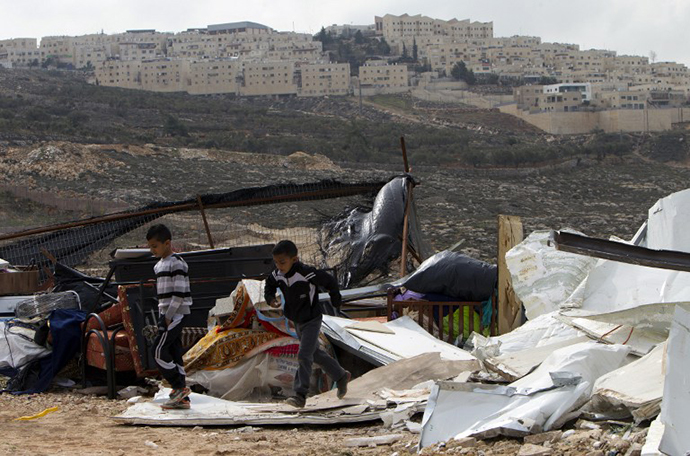
In October 2013, 200 Palestinian families – all Israeli citizens – got the demolition order which said that their homes were built illegally. They had just a month to appeal the decision.
This case became known beyond Israel because the initial plan to evict 1,000 Palestinians grew to include 15,000. At the same time, the Israeli authorities announced they were going to build 1,200 new homes for Jews.
And now a whole team of lawyers have to tell the Western media that there’s nothing extraordinary going on and that all the authorities wanted was to make the Palestinians to appear in court.
Bedouins are bad for the desert
Another notorious story took place when the Israeli authorities decided to force out Bedouins. The irony was that the plan didn’t work because the Israeli were reluctant to call them Palestinians. They failed to take into account the attitude the West has towards indigenous populations like Bedouins or Australia’s aborigines, or animals like Nepal tigers, pink flamingoes and white tigers. That’s why the West raised havoc about Bedouins.
In the autumn, the Israeli authorities declared that Bedouins live and migrate in the Negev Desert illegally. This is the reason why up to 40,000 (according to the Israeli media) or up to 80,000 (according to the Palestinian media) Bedouins would have to be forcefully moved to a camp in the north. Even Bedouins’ camps in the desert have been recognized as illegal.
Bedouins were angered and rallied against the move under Palestinian flags, throwing stones. The authorities seemed to backpedal on their decision but in reality they only expanded their plans – they now want to evict the Bedouins from the village of Ramia of the Carmiel municipality.
When the authorities laid out their relocation plans, the Israeli media unleashed an information war against Bedouins. There have been all sorts of claims. The media said these are armed gangs with thousands of firearms who are engaged in robberies, weapons smuggling and spying on military facilities. Some went as far as to claim they acted on the orders of Egypt’s Muslim Brotherhood and that their military might matches that of the Israeli Defense Forces.
Refugee conveyer belt
Israel likes to condemn the very existence of Palestinian refugee camps and their international support. But inside Israel we see an ongoing process of turning well-to-do Palestinians into refugees and people without a permanent dwelling place.
In May 2013, military bulldozers tore down four private homes in the Jabal al-Mukabbir neighborhood in East Jerusalem. Abu al-Dabaat’s family lived in one of them. It was a three-story house with a floor space of 480 sq meters, boasting four separate rooms for married children. The house was built in 1973 on the plot of land bought by their grandfather as early as 1930. Abu al-Dabaat was convicted to two years behind bars in the 1970s for ‘illegal construction’. In May 2013, they tore the house down and arrested his three sons for protesting against the use of the bulldozer.
Another family, al-Qaq, completed their house in 2000. In 2002, they got their first demolition order which they were supposed to execute on their own. Since they didn’t do that, the court slapped them with a fine of $21,800. They made multiple attempts to get a permit but it was all in vain.
In the Shufat refugee camp in Northern Jerusalem bulldozers demolished a house which the authorities deemed illegal although the law bans the authorities to interfere with the life of refugee camps which enjoy extraterritoriality.
In the al-Fawar refugee camp to the south of Hebron, the army destroyed the wells in the interests of the Jewish settlement of Ma’oun. The settlers continued to expand to the south-west and the army helped them destroy the irrigation facilities of the Palestinians. Abdul Hadi Hantash, a lawyer for the Palestinians and Palestinian himself, has spent years in an attempt to defend the rights of Palestinians whose homes were demolished, garden destroyed by the army. The military acted in the interests of the settlers whose presence in the West Bank has been illegal.
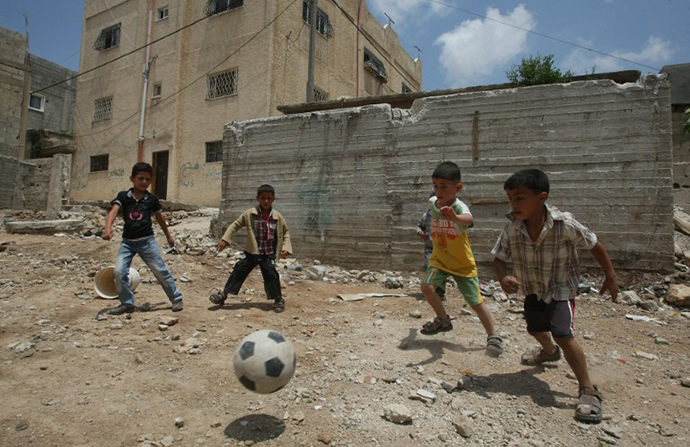
The farmers on the south of the Hebron Hills have been living on the West Bank since the 19th century. They used to live in caves and cultivate the land and breed the cattle. In 1999, the army forced out 700 Palestinians from 12 settlements claiming they lived illegally near a military range. But the range wasn’t operational so the residents returned to their homes, although they were forbidden to set up power or water supplies, dig wells or build toilets. In 2012, the army resumed military exercises and the courts resumed proceedings on evictions for eight out of 12 settlements. One thousand two hundred Palestinians are facing the threat to become bums.
Time is on the side of…
The drama that has been unfolding on this tiny piece of land since 1947 appears to have no solution. In Israel any security related information is classified. Any steps taken by the army are considered to be a matter of security. In this way, Palestinian olives, homes, pastures, deserts and villages have becomes security facilities of the state of Israel.
There’s a broad consensus in the Israeli society on the Palestinian issue: the Palestinians must disappear. This is widely discussed in the media and online.
There are several options available. Some say Israel needs to curtail expensive defense projects and pay out $250,000 to each Palestinian family on the condition that they would leave.
Others believe that the army and the Jewish settlers are acting slowly but surely. The authorities spend money on the construction of Jewish houses and tear down those of Palestinians.
Now, a third group advocates building a new security wall, pushing all the Palestinians out of Israel and holding the ground.
Palestinians don’t have the means even to maintain the status quo. But they have indeed changed since 1948. They are no longer terrified farmers who fled the atrocities in the village of Deir Yassin. They’ve become a nation that is united politically. It’s the most highly-educated nation in the East. They have formed political parties. And they have learned the lesson that you should never leave your home.
Who’s going to win? We’ll see in the near future.
In the autumn of 2012, Henry Kissinger made a statement after studying an 80-page report by 16 US intelligence agencies that there will be no state of Israel by 2023.
The statements, views and opinions expressed in this column are solely those of the author and do not necessarily represent those of RT.
The statements, views and opinions expressed in this column are solely those of the author and do not necessarily represent those of RT.
